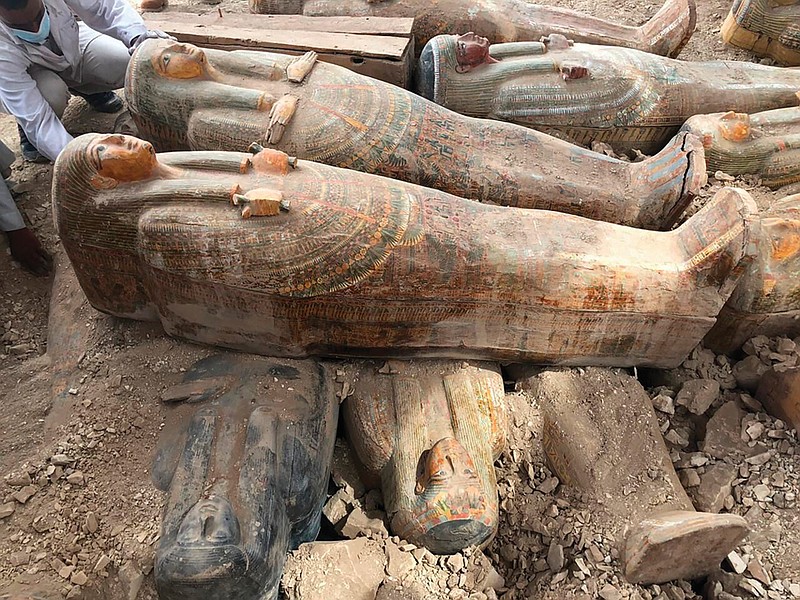LUXOR, Egypt - Egypt's antiquities authorities on Saturday revealed the details of 30 ancient wooden coffins that were recently discovered in the southern city of Luxor.
Mostafa Waziri, secretary general of the Supreme Council of Antiquities, told reporters the coffins, with inscriptions and paintings, were found in the Asasif Necropolis on the Nile River's west bank near Luxor.
When discovered last week, the coffins were in two layers, with 18 coffins on top of 12 others, he said. The coffins were for men, women and children from the 22nd dynasty (945-715 B.C.) and had been collected and hidden by a priest for fear of being looted, Waziri said.
Antiquities Minister Khaled el-Anany said the mummies found in the coffins included 23 adult males, five adult females and two children. He said the coffins were "exceptionally painted and preserved." His ministry has described them as one of the "biggest and most important" discoveries in recent years.
Archaeologists opened the coffins of a man and a woman, both wrapped in cloth. Their gender can be distinguished by the shape of their hands, said Waziri, who explained that ancient women were buried with their hands open while men's hands were closed. The two mummies seemed well preserved with the outer wrappings still intact, completely covering their faces and bodies. El-Anany said further excavations are underway in the necropolis, which includes tombs dating back to the Middle, New Kingdom and Late Periods (1994 B.C. to 332 B.C.). He said the coffins will be moved in November to the Grand Egyptian Museum that Egypt is building near the famed Giza Pyramids in Cairo. Authorities have said the museum will open next year. The coffins' discovery is the latest in a series of new finds that Egypt has sought publicity for in the hopes of reviving its key tourism sector, which was badly hit by the turmoil following a 2011 uprising that toppled longtime autocrat Hosni Mubarak.

